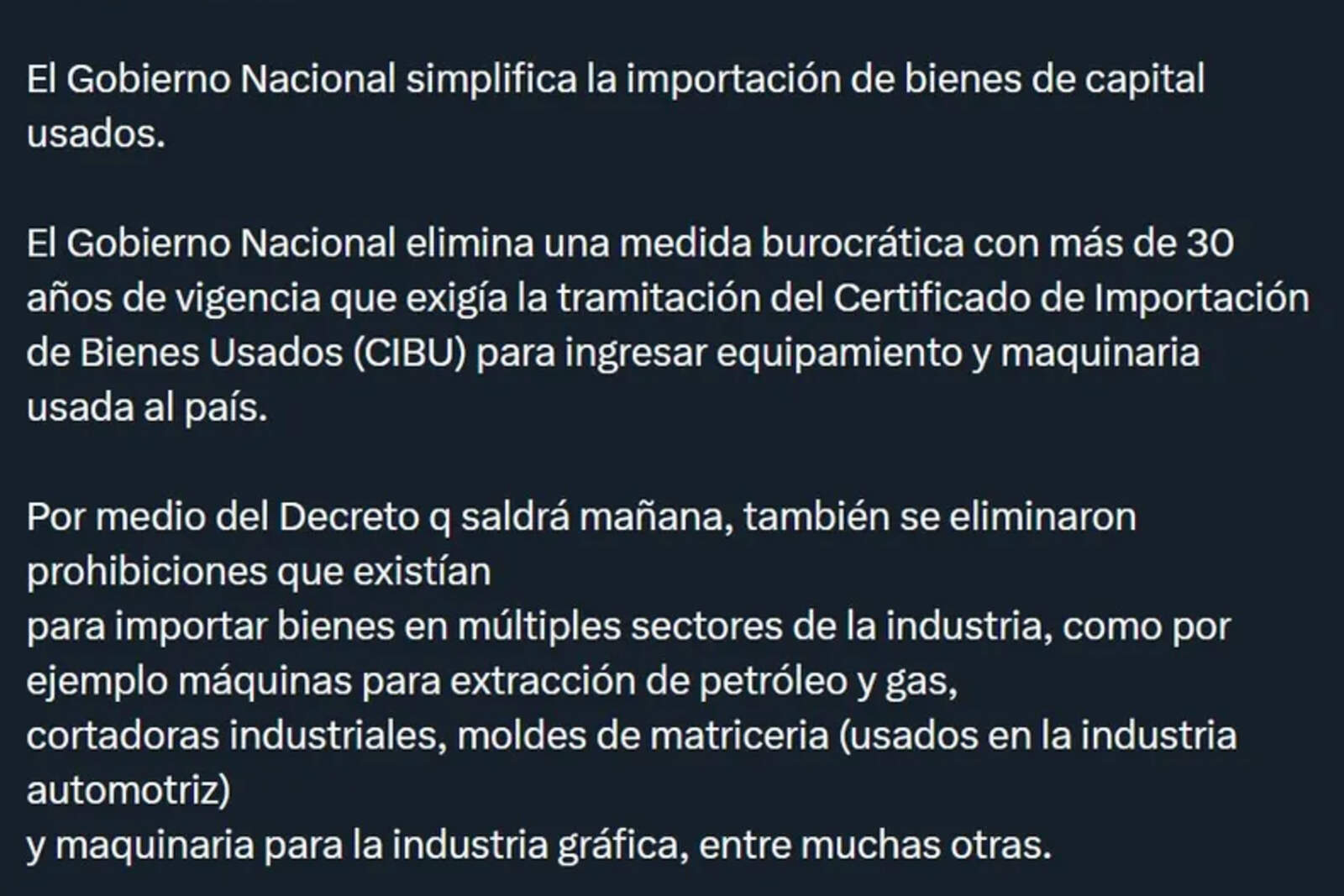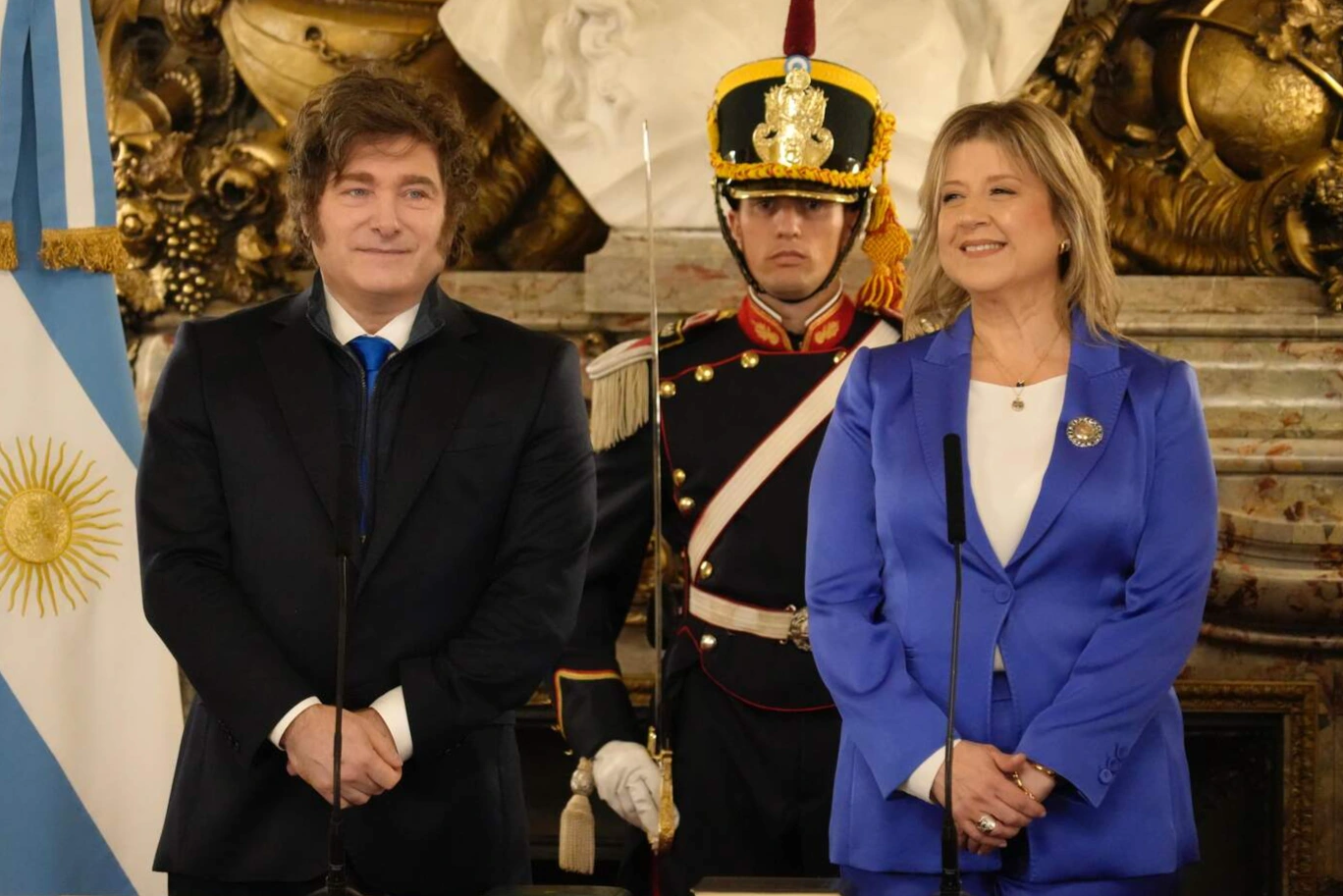In a move marking a new step in economic deregulation, the National Government announced the elimination of the Certificate of Importation of Used Goods (CIBU), a provision that for more than 30 years served as a barrier to the entry of second-hand industrial and technological equipment. The measure was confirmed by the Minister of Economy, Luis Caputo, through his social media, and will be formalized this Tuesday with the publication of the corresponding Decree in the Official Gazette.
"The National Government simplifies the importation of used capital goods. We eliminate a bureaucratic measure with more than 30 years of validity," stated Caputo, making it clear that this is an initiative aimed at freeing economic activity from the regulatory stranglehold inherited from previous administrations.

Until now, importing used machinery required the processing of the CIBU, a cumbersome procedure that in 2024 alone had caused about 1500 files. This state intervention, besides being bureaucratic, conditioned business decisions and limited investment capacity in key sectors. With the new decree, prohibitions that until today governed the importation of goods in various industrial sectors are also eliminated. Among the cases mentioned by Caputo are:
.Machines for oil and gas extraction
.Industrial cutters









